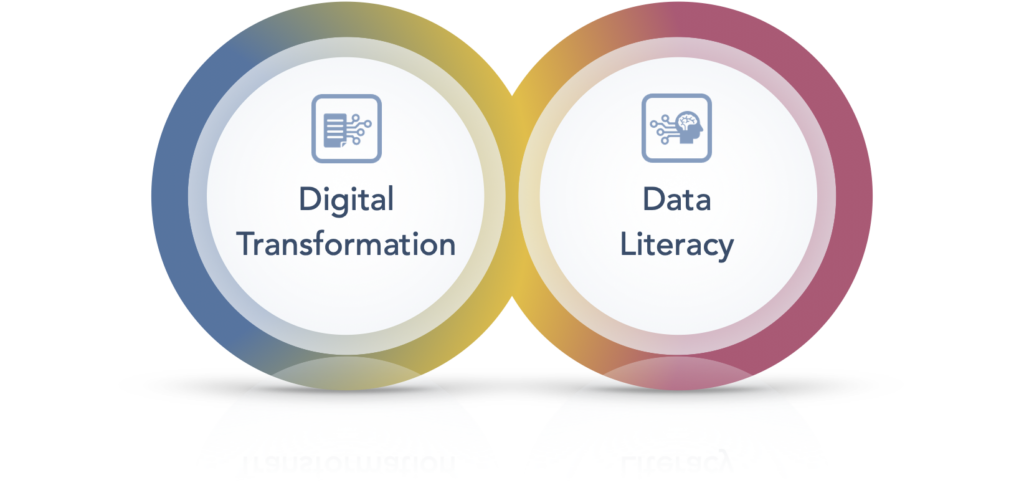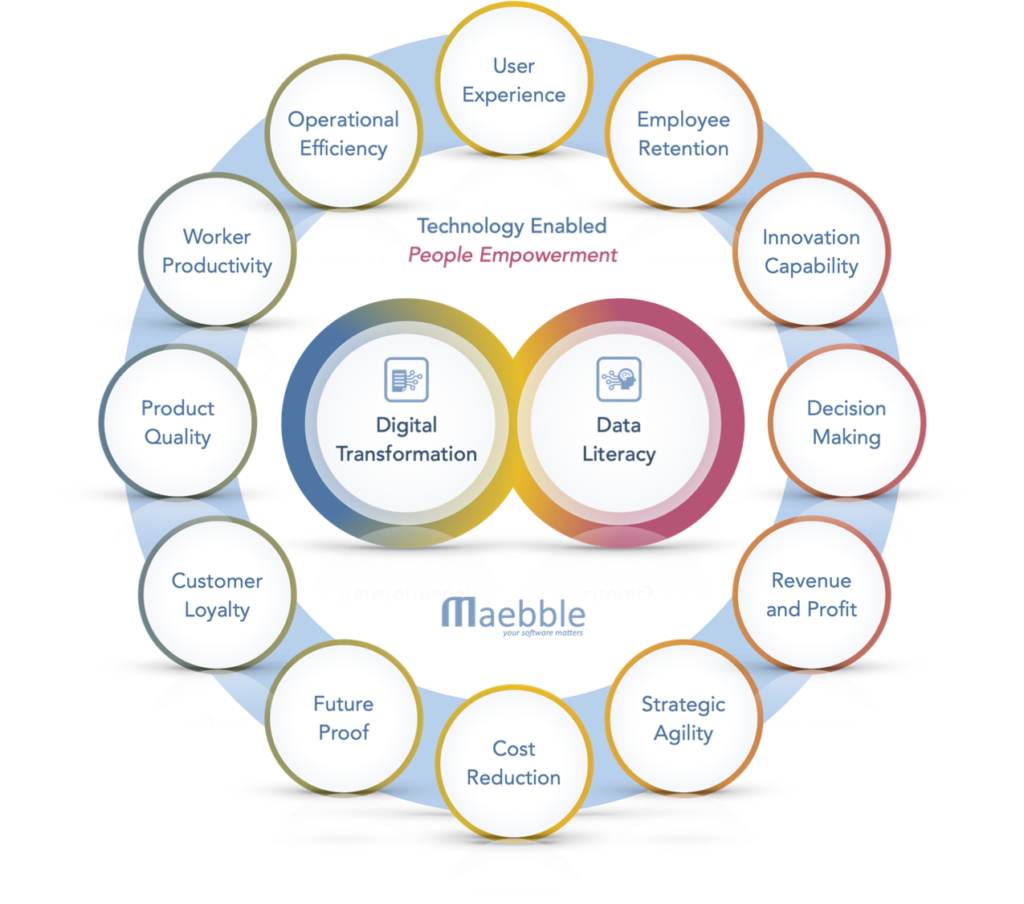High Data-Literacy Boosts Performance, Job Satisfaction, Customer Loyalty, and Innovation!
High worker data-literacy and a company-wide data-culture yield valuable benefits and rewards for organisations. Modernising legacy data and systems is one step organisations take to adopt new technologies in order to increase innovation capabilities, remain competitive, and improve their bottom-line. However, workers’ ability to understand, analyse, and use data has not kept pace with these technological advances.
Forrester research (2022) shows that companies with high maturity data-literacy:
- Empower employees through data-democratisation and by improving their data skills;
- Foster a data-culture and accelerate their digital transformation;
- Invest in developing data-literacy and skills across all departments and functions;
- Experience dramatic benefits in decision-making, productivity, and employee satisfaction.
Technology + People = Digital Transformation Journey

A digital transformation journey is typically a ‘technical exercise’. It starts with recovery of valuable business knowledge (data and processes), modernisation of processes, data-democratisation through interconnecting new and existing enterprise applications. It finishes with innovations of products, processes, and new organisational designs. All these new technologies require workers to develop new skills, knowledge, and abilities to use and benefit from an extended array of data, or rather valuable information. Enter Data-Literacy!
People in the driver’s seat – Data-Literacy
Benefits that organisations report from investing in the development of data-literacy are increased innovation, greater customer experience, better decision-making, improved retention, reduced operational costs, and increased revenues.
Data-driven decision-making lies at the heart of the benefits as rich, accurate and timely information can be precessed faster which speeds up the process leading to execution and meeting business objectives. Furthermore, data-democratisation enhances workers’ effectiveness and productivity, contributing to higher job-satisfaction and employee retention.
Finally, the digital transformation, both technology modernisation and data-literacy improvement have a causal and positive effect on customer services delivery, user and client experience, brand reputation, and customer loyalty.

